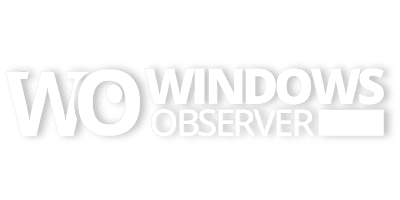Last week I had the opportunity to represent the Microsoft MVP Program and participate on a panel that discussed motivating communities. This panel was a part of a presentation that discussed what motivates individuals which was giving by Amanda Roberts, the CEO and Co-Founder of Stone Cobra Software.
This presentation/panel discussion was one of the agenda items for the Consortium for Service Innovation (CSI) Member Summit held in Orlando, Florida.
The Consortium is a non-profit alliance of organizations focused on innovation for the support industry. Members create innovative ideas through a process of collective thinking and experience. The Consortium’s work integrates academic research and emerging business trends with the members’ operational perspectives. The result is innovative operational models that improve the customers’ support experience. Rather than make incremental improvements to current processes the Consortium develops new innovative ways to deliver outstanding customer support.
This group includes customer service directors and senior managers from companies like Microsoft, Hewlett Packard, Oracle, Novell, Cisco, Yahoo and Redhat.
I was asked by my MVP lead at Microsoft, Jake Grey, if I could participate and I jumped at the opportunity to be part of this discussion as I have spent a significant part of my Navy career motivating Sailors. I learned sitting in on the summit presentations that the military structure, when it comes to customer service and personnel motivation, really does run parallel with corporate America. In fact the main difference for me is a uniform instead of a business suit – otherwise the concepts and practices are the same.
Turns out they asked for Microsoft MVP’s because the program is regularly referred to by CSI members as a model for engaging enthusiasts about a companies products and services. No surprise there and yes I am biased as an awardee.
I was paired up on the panel with another Microsoft MVP, Nikita Polyakov, who is a Windows Phone 7 MVP and very active in the Tampa area user group community.
The panel discussion immediately followed Amanda’s presentation and was an interview style setup. After having an opportunity to describe our backgrounds and involvement in communities and the MVP Program we each talked about our views on what makes a community viable compared to those that do not thrive. Each of us also had unique perspectives as Nikita comes from a physical user group, enterprise perspective while I spend a lot of time in online communities via Social Media and forums.
For me the main keys about motivation and good online communities are:
- Members must feel like they are contributing at some level. There is a positive return when input is listened to and understood. It does not have to result in a change or implementing a new process – the member must feel like their opinion is valued.
- People who are enthusiastic about your product and services will also be your best critics because they see both sides as opposed to someone who simply points out your shortcomings.
- Remember that your community is full of volunteers who are typically involved because they are passionate about the subject matter of the group. Between me and Nikita we put in between 2-6 hours a day in our respective communities because we enjoy being involved. That desire comes from the first bullet I mentioned above.
- Which is better rewards or recognition? If someone approaches achieving an award or reward by doing things off a checklist then they may not be as passionate about the product/community as it seems. When someone is awarded something when it is unexpected because of what they were already doing then, in my experience, they are doing it because they want to be not because they think that is what is necessary to get the reward.
- I believe support has to be real time in this age of Twitter and instant communications. @ComcastCares and @XboxSupport are great examples of this.
- My last comment at the panel discussion was something I have seen the U.S. Navy learn since the explosion of Social Media. Young Sailors know and embrace this technology so as a leader in the Navy or a leader in your product and services if your not going to them where they are at then you are going to be behind. If you have ever been behind and tried to catch up and still keep up with new information you know how hard it is to get back up to speed.
I do have a couple of side notes that are unrelated to the CSI Member Summit that I want to mention:
- I got my first live peek at a Windows Phone, the Samsung Focus, that Nikita had and it is slick. The screen on that phone is something else and has me considering not getting the LG Quantum with the slide-out keyboard just because of that screen!
- Toby Richards, the General Manager for Community & Online Support for Microsoft, was in attendance and I had the chance to meet him and talk over lunch about technology and how things have changed over the years we have been involved in it. Part of Toby’s responsibilities includes the MVP Program at Microsoft.
- One of the briefs I listened in on was from Hunter Donald who is a Senior Program Manager at Microsoft. His presentation was about their Enterprise Customer Support program and I learned that they use incentives such as achievements and badges to recognize efforts made by their support technicians. The setup looked a lot like that we see at the Microsoft web based support forums.
It was a great experience and I appreciate the support from the CSI folks and Jake Grey for the opportunity to participate. I learned quite a bit sitting in on those sessions.
Now it is time to hear from you. What do you consider the key elements of a successful community?

